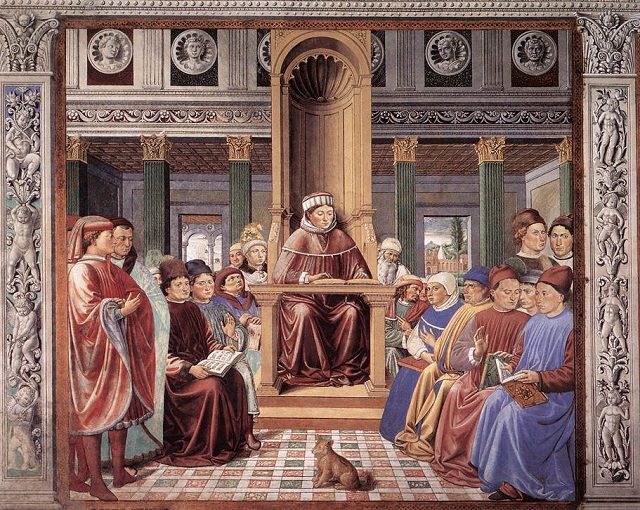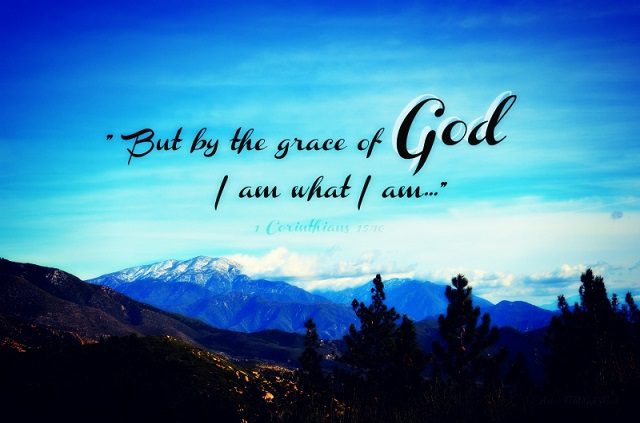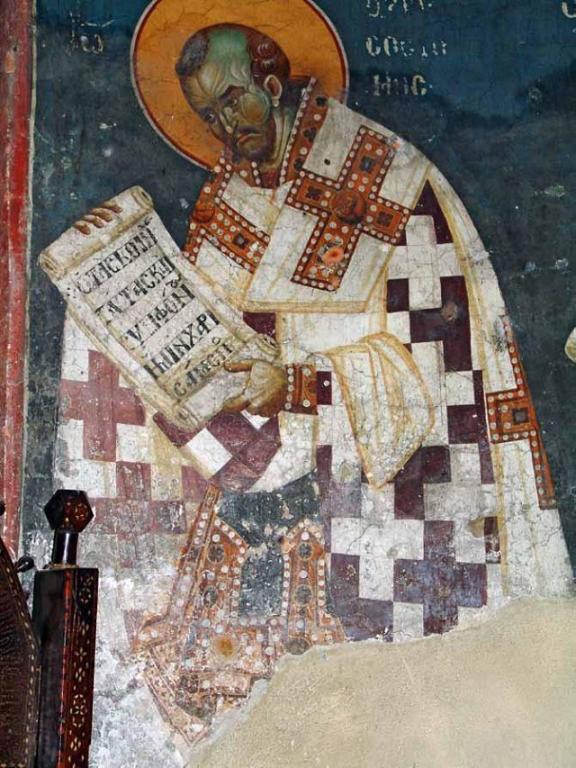
Background: Catholic theologian Ludwig Ott provides a brief but very technical definition of Molinism (not for the faint of heart), which is my own position:
Most of the Molinists, and also St. Francis de Sales (+1622), teach a conditioned Predestination (ad gloriam tantum), that is, post and propter praevisa merita. According to them, God by His scientia media [middle knowledge], sees beforehand how men would freely react to various orders of grace. In the light of this knowledge He chooses, according to His free pleasure a fixed and definite order of grace. Now by His scientia visionis, He knows infallibly in advance what use the individual man will make of the grace bestowed on him. He elects for eternal bliss those who by virtue of their foreseen merits perseveringly cooperate with grace, while He determines for eternal punishment of hell, those who, on account of their foreseen demerits, deny their cooperation. The ordo intentionis and the ordo executionis coincide (grace-glory; grace-glory). (Fundamentals of Catholic Dogma, Rockford, IL: TAN Books, 1974; originally 1952, 242-245)
I noticed on your web site, regarding the paradox of predestination and free will, you seem to lean in the direction of Molinism.
Correct.
I was wondering what bases- scriptural, logical, traditional- your understanding of Molinism rests on.
As for the logical basis, I’ll simply appeal back to Ott’s description of the position above, and I’ll interact with your critique below. I’d be happy to discuss further anything you find in those which you would like to talk about. As one would expect for such a highly abstract hypothesis, there is not much direct biblical indication. But one very interesting passage I am aware of is Matthew 11:21,23 (RSV):
Woe to you, Chorazin! woe to you, Bethsaida! for if the mighty works done in you had been done in Tyre and Sidon, they would have repented long ago in sackcloth and ashes . . . And you Capernaum, will you be exalted to heaven? You shall be brought down to Hades. For if the mighty works done in you had been done in Sodom, it would have remained until this day.
As I wrote elsewhere: “This has to do with what Tyre, Sidon, and Sodom would have done had they received more preaching like the first three. This is middle knowledge: knowledge of possible, conditioned responses that didn’t actually happen due to differential circumstances.”
Middle knowledge is possible as part of God’s omniscience. Knowing everything — so the Molinist argues — entails knowing not only what men will do in what to us is the future (but to God is already present — He being out of time) but what they would have done had they been in different circumstances. Note, then, that the above passage contains the two essential components necessary for middle knowledge:
1) Theoretical circumstances that did not actually happen, but may have happened.
2) Knowledge of how people would have reacted had this alternate state of affairs occurred in actuality.
Since God cannot make statements that are merely probable (since this would indicate a lack of knowledge and therefore omniscience), He must know these merely possible and not actual occurrences with the certainty that He possesses with regard to all knowledge. Therefore, middle knowledge is proven from Scripture. Now, whether He chooses to exercise scientia media in His decrees of predestination to glory is not so easily proven from Scripture, but it seems to me a quite permissible speculation based on other revelations of God from the same Bible.
Ott writes about further possible biblical evidence for Molinism:
The Molinists invoke the passages which attest the universality of the Divine desire for salvation, especially 1 Tim 2:4, as well as the sentence to be pronounced by the Judge of the World (Mt 25:34-36), in which the works of mercy are given as ground for the acceptance into the Heavenly Kingdom. But that these are also the basis for the ‘preparation’ for the Kingdom, that is, for the eternal resolve of Predestination, cannot be definitely proved from them . . .
Ott also gives the following proposition as a de fide dogma: “GOD, BY AN ETERNAL RESOLVE OF HIS WILL, PREDESTINES CERTAIN MEN, ON ACCOUNT OF THEIR FORESEEN SINS, TO ETERNAL REJECTION.” It seems reasonable, then, that if God takes into account forseen sins in deciding who is to be eternally lost, that He would also take into account foreseen positive actions and beliefs, held or done as a result of His freely given grace, in deciding who to save. I don’t totally understand God’s mind, of course (no one does), but this seems plausible from human reason and what we do know about God. Ludwig Ott wrote in another section of his book:
While exhaustively knowing His creative causality He also knows therein all the operations which flow or can flow from this, and indeed, just as comprehensively as He knows Himself. 1 Jn 1:5: ‘God is light and in Him there is no darkness.’ . . .
GOD KNOWS ALL THAT IS MERELY POSSIBLE BY THE KNOWLEDGE OF SIMPLE INTELLIGENCE (scientia simplicic intelligentiae). (DE FIDE)
. . . Holy Writ teaches that God knows all things and hence also the merely possible [cites Est 14:14, 1 Cor 2:10, S. Th. I, 14,9] . . .
GOD ALSO KNOWS THE CONDITIONED FUTURE FREE ACTIONS WITH INFALLIBLE CERTAINTY (Scientia futuribilium). (SENT. COMMUNIS.)
By these are understood free actions of the future which indeed will never occur, but which would occur, if certain conditions were fulfilled. The Molinists call this Divine knowledge scientia media . . . The Thomists deny that this knowledge of the conditioned future is a special kind of Divine knowledge which precedes the decrees of the Divine Will.
That God possesses the certain knowledge of conditioned future free actions (futuribilia) may be positively proved from Scripture. Mt 11:21: ‘Woe to thee, Corozain! Woe to thee, Bethsaida! For if in Tyre and Sidon had been wrought the miracles that have been wrought in you, they had long ago done penance in sackcloth and ashes.’ Cf. 1 Sam 23:1-13; Wis 4:11.
The Fathers assert Divine foresight of conditioned future things when they teach that God does not always hear our prayer for temporal goods, in order to prevent their misuse; or that God allows a man to die at an early age in order to save him from eternal damnation [cites St. Gregory of Nyssa] . . .
Speculatively, the Divine foreknowing of conditioned future things is based on the infinite perfection of the Divine knowing, on the infallibility of the Divine providence, and on the practice of prayer in the Church . . .
Molinism, deriving from the Jesuit theologian Louis Molina (+ 1600) explains the infallible Divine prescience of future free actions by recourse to scientia media, which precedes the Divine decrees of will conceptually, not in time, and which is independent of them. Through scientia simplicis intelligentiae God knows from all eternity how every creature endowed with reason will act in all possible circumstances. Through scientia media He knows how it would act in all possible conditions, in the case of new conditions being realised. In the light of scientia media He then resolves with the fullest freedom to realise certain determined conditions. Now He knows through scientia visionis with infallible certainty, how the person will, in fact, act in these conditions . . .
The mode of the scientia media, which is the basis of the whole system, remains unexplained. (pp. 40-43)
Here is some of the patristic evidence (citations from William A. Jurgens, The Faith of the Early Fathers, Collegeville, Minnesota: Liturgical Press, 1979):
Origen, Commentaries on Genesis, 3, 6 [ante 232]:
When God undertook in the beginning to create the world, for nothing that comes to be is without a cause, – each of the things that would ever exist was presented to His mind. He saw what else would result when such a thing were produced; and if such a result were accomplished, what else would accompany; and what else would be the result even of this when it would come about. And so on to the conclusion of the sequence of events, He knew what would be, without being altogether the cause of
the coming to be of each of the things which He knew would happen. (vol. 1, 200, #461)St. Gregory of Nyssa, On the Untimely Deaths of Infants, Migne, PG 46, col. 184 [c. 381]:
It is a reasonable supposition that God, who knows the future just as well as the past, checks the advance of an infant to perfect maturity of life so that the evil which, by virtue of His foreknowledge, He has detected in the future, may not actually develop . . . This, we suspect, is the reason for the deaths of infants; He who does all things rationally withdraws the material of evil in His great love for men, granting no time for the actual doing of evil works to one whom, by virtue of his foreknowledge, He knows would indulge a propensity for evil. (vol. 2, 57, #1059)
St. Augustine, The Gift of Perseverance, 9, 22 [c. 429]:
[C]ertainly God, foreknowing that certain men would fall away, was able to take them from this life before that would happen. (vol. 3, 174, #1996)
I have strong reservations about Molinism- as did the Post-Tridentine Church which first confronted it.
Not, however, to the extent that it was prohibited.
It would seem to me that the critical issue with Molinism is the assertion that God predestines in accordance with foreseen merits. This opinion of Molina, would seem to me to imply as a corollary the scientia media. However, is there really any basis in the Scriptures for the assertion that God predestines in accordance with foreseen merits? What scriptural texts would you appeal to in order to support this position?
I provided those above. By extension, all the many passages which discuss the importance of works in whether one is saved or not, might be thought to apply here. They seem to indicate that God regards these as highly important in salvation, and therefore, it is reasonable to suppose that they may have played a part in His decision to damn some people and save others. On the other hand, I don’t think you can provide texts which absolutely rule this out and allow for predestination in a way which is distinguishable from Calvinist forms which deny human free will.
Would this not make God’s grace dependent upon our free will, as if there is passivity in God?
No, because He is still the ultimate cause of any good thing that we do. He would simply be considering what we actually do (still caused by His grace) in relation to His salvation. If He knows that we will accept and act upon His grace, He could therefore choose to elect the person who does so. It still all goes back to God, so I don’t see any problem.
As if the will is absolute in juxtaposition with God’s will?
The Bible often expresses ideas which suggest that our will and God’s become one and the same. We “work together” with Him; are His “co-laborer’s,” etc. Philippians 2:12-13 puts both things together: “Work out your own salvation with fear and trembling; for God is at work in you, both to will and to work for his good pleasure.”
I have three main issues with Molinism:
1. Its conception of freedom: freedom is understood as an absolute in juxtaposition with God’s will, rather than dependent on God’s will. Since, according to Molina, God dispenses grace based on foreseen knowledge and consent, his will becomes dependent on ours. I find this almost blasphemous.
I don’t think (though I’m not absolutely sure, and don’t claim any expertise at all in this whole complicated area) that grace is dependent upon foreseen consent, but rather election to salvation. In other words, God gives the grace that all need in order to be able to choose Him and salvation. Some act in the right way upon that enabling grace; others do not. God would then take into account how men are going to act, in His election of some and not others to salvation.
If I’m right about that, how He distributes grace is not dependent on man’s will over against His own. I would never hold that God’s will is dependent upon ours. If that is what Molinism entails, and you can prove this to me, then I will change my position. But I will have to see some solid documentation for that to happen.
2. The scientia media: this places both the knowledge and the will of God as regards our salvation entirely dependent on our will-
No, not at all. I think the objection is based on an unnecessary dichotomy: because we work together with God’s grace, it is thought that we are the final cause rather than God, because God must do all and we, nothing. This is the same exact objection that protestants have about Catholic soteriology in general (which they mistakenly characterize as semi-Pelagianism and refer to derisively as synergism).
Just because God takes into account our response (in Molinism) does not prove that “salvation is entirely dependent on our will.” This couldn’t possibly be the case anyway, since Trent rules out Pelagianism. Therefore, there is no such thing as “man’s will for good” without God’s enabling grace. That being the case, it is a matter of definition that a will towards accepting God’s grace and salvation cannot possibly be :independent” of God and somehow self-originated by man. Therefore, your difficulty vanishes, as an instance of false dichotomy.
how we would respond in various circumstances- rather than on God’s omnipotent will and the gratuity of his grace.
I’ve already shown from the Bible that God has middle knowledge about how we might respond in different circumstances.
It is already implied in the above notion of freedom. Thus, grace ceases to be absolutely gratuitous- which appears to contradict the Apostle- “What do you have that you have not first received?” (Romans 9)
I agree; this is not at issue.
3. It’s determinism: seeking to avoid external determinism, I see Molinism as falling into the trap of that which it fears. Circumstances, pre-arranged by God, infallibly carry out his plans.
The existence of true human free will means that determinism is ruled out. In my opinion, Molinism squares better with both free will and God’s desire for universal atonement (rather than the Calvinist limited atonement). That’s why I believe it. It makes the most sense to me based on what we know about God.
Therefore, properly speaking, external circumstances determine the fate of each person, even though it is said that each is given sufficient grace so that they, rather than God are responsible for their sins. To me, this greatly compromises man’s freedom, if not destroys it all together by reducing his actions to the necessity of circumstance.
You’ll have to explain this further. I don’t think I understand the argument you are making on this point.
I believe it is a false dilemma to state: 1) either determinism or 2) freedom; which (albeit a brief summarizing) you seem to assert in your dialogue with Dr. Alex Pruss. [link]
I agree. I think reality is a paradox of cooperation of man with God’s enabling grace and His predestination. We cooperate in our salvation; we know that from the Bible, so why wouldn’t God consider that in electing to save us?
It is clear, both from reason and revelation, that God determines the human person, as a first cause determines a second cause (though not in the order of time, but in that of causality).
Yes, of course.
Especially since our free will is clearly the creation of God himself. Yet as God determines each being according to its nature, so too God determines man according to his nature. In man’s case, God determines man in a non-necessitating manner, since man is free. Mysterious, no doubt, but I believe it to be logically sound. God is the creator of man. Man is free. Therefore, God determine’s man’s will in a non-necessitating manner.
If it is non-necessitating, how can it be determined? Please elaborate. It could very well be that I am missing some crucial distinction.
By analogy, God’s grace- eternally decreed- determines the elect infallibly toward salvation, since God’s will is omnipotent. But God’s grace determines the elect in such a non-necessitating manner, so that while it is really possible for them to fall and remain in sin unto death, they do not. Indeed God wills the salvation of all, in the sense that God wills that it is possible for all to be saved. In doing so- in God’s antecedent will- God concommitantly wills the possibility that some will not be saved. Yet as regards his consequent will- God decrees that some will be saved and then dispenses graces accordingly- in an absolutely gratuitous manner. I believe the Scriptures, especially Saint Paul are clear on this issue, and if you would like to continue this dialogue I will furnish a summary of the principle texts for you.
The problem I have with this is that it is hardly distinguishable logically from Calvinist double predestination. Ott wrote:
POSITIVE REPROBATION
Heretical Predestinationism in its various forms (the Southern Gallic priest Lucidus in the 5th century; the monk Gottschalk in the 9th century, according to reports of his opponents, which, however, find no confirmation in his recently re-discovered writings; Wycliffe, Hus, and esp. Calvin), teaches a positive predetermination to sin, and an unconditional Predestination to the eternal punishment of hell, that is, without consideration of future demerits. This was rejected as false doctrine by the Particular Synods of Orange, Quiercy & Valence and by the Council of Trent. Unconditioned positive Reprobation leads to a denial of the universality of the Divine Desire for salvation, and of the Redemption, and contradicts the Justice and Holiness of God as well as the freedom of man.
According to the teaching of the Church, there is a conditioned positive Reprobation, that is, it occurs with consideration of foreseen future demerits (post et propter praevisa demerita). The conditional nature of Positive Reprobation is demanded by the generality of the Divine Resolve of salvation. This excludes God’s desiring in advance the damnation of certain men (cf. 1 Tim 2:4, Ezek 33:11, 2 Pet 3:9) . . .
NEGATIVE REPROBATION
In the question of Reprobation, the Thomist view favours not an absolute, but only a negative Reprobation. This is conceived by most Thomists as non-election to eternal bliss (non-electio), together with the Divine resolve to permit some rational creatures to fall into sin, and thus by their own guilt to lose eternal salvation. In contrast to the absolute Positive Reprobation of the Predestinarians, Thomists insist on the universality of the Divine Resolve of Salvation and Redemption, the allocation of sufficient graces to the reprobate, and the freedom of man’s will. However, it is difficult to find an intrinsic concordance between unconditioned non-election and the universality of the Divine Resolve of salvation. In practice, the unconditioned negative Reprobation of the Thomists involves the same result as the unconditioned positive Reprobation of the heretical Predestinarians, since outside Heaven and Hell
there is no third final state.
I would say, based on the above, that the Thomist position on predestination of the reprobate is not distinguishable from the heretical Calvinist view, whereas the Molinist position is more in line with what Ott states is Church teaching on conditioned positive reprobation. God takes into account foreseen demerits and merits, so that Molinism has a certain parallelism which (to me, anyway) has a ring of truth, which the Thomist position lacks. I suppose this could be described as an argument from analogy.
Clearly, God does not predestine anyone to hell; yet he permits some to fall and remain in sin, either for a greater good, or in just punishment for previous sins. However, why God does not elect some, but does others- this indeed would seem to be a truth only known in the next life, as St. Paul confesses in Romans 9 and St. Augustine advises- “Why God elects some, and not others, do not judge, lest you err.”
I think the deeper mystery lies in explaining why some choose salvation and others do not, based on the same grace potentially available to all. I think that mystery makes more sense to accept as a probable reality than to assert a scenario where God “passes over” some while electing others, without regard to their actions. That’s too close to heretical double predestination for me, thank you. I think Molinism better squares with God’s mercy and justice.
Further, God cannot command what is impossible; therefore, of those who are damned we can say two things: 1) It was really possible for them to keep the divine commands, and they failed to do so of their own free choice and 2) God’s decree of damnation was inflicted from all eternity but only in view of their demerits, not prior to their actual demerits in contrast with election. Therefore, reprobation and predestination seem to operate in an inverted fashion- one by election prior to foreseen merits- so that the gift is absolutely free; the other on the basis of demerits witnessed from all eternity.
This is what I deny. I think it is parallel, not “inverted,” as you say. But just because God considers merits in electing the saved does not mean that He didn’t cause those merits. It’s the same argument that we have with the Protestants over merit itself (I just had a big debate about that with a Lutheran), extended to election. God considers our merits but that is only “crowning His own gifts,” as Augustine says. Hence, Molinism is merely extending the principle which all Catholics already accept regarding merit per se.
In closing, I am curious as to your deeper thoughts on this issue. Undoubtedly, it is among the most controversial and mysterious of Church mysteries that the mind can probe.
Absolutely. And because I agree that this is the case, I am not in the least dogmatic about my position. It is what I have come to in my own mind, based on what I know (and feel). But both positions are allowed by the Church, and this is my sincere conclusion and opinion, based on my existing knowledge of theology and much reflection through the years.
Ultimately it is a mystery, I believe of God’s infinite mercy, justice, and freedom all coming together at a point that is too bright for us to perceive in this life.
Yes, for sure. I have given my reasons for being a Molinist, to the best of my ability.
***
(originally 4-15-06)
Photo credit: image by DavidZydd (7-12-17) [Pixabay / CC0 Creative Commons license]
***


























